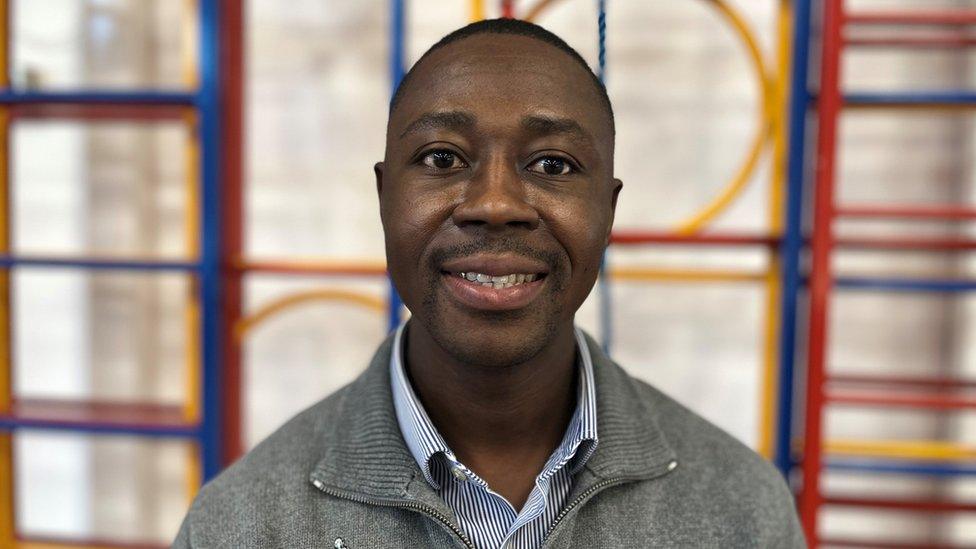Child criminal exploitation: Poverty 'shame' driving kids to gangs - expert
- Published
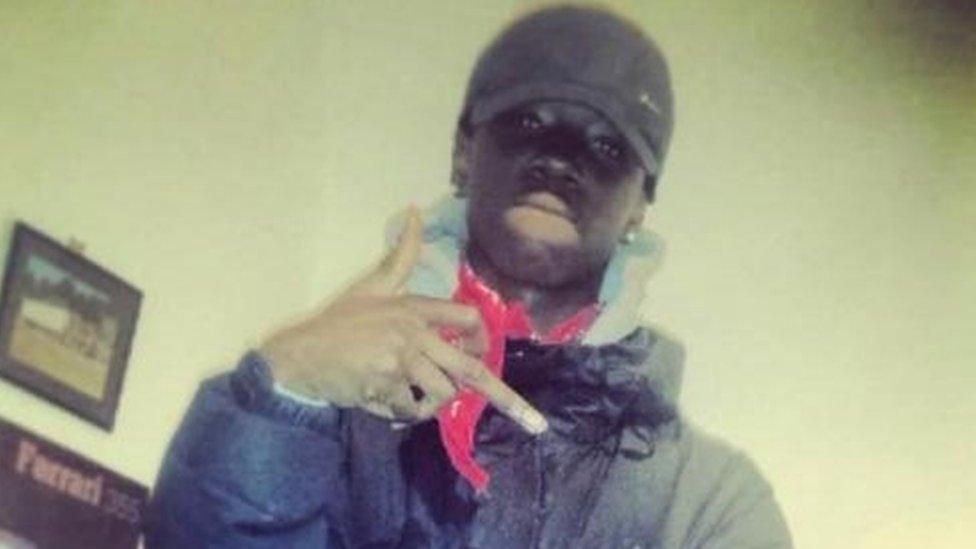
Sosa Henkoma was taught how to fire a gun when he was only 12 years old
A former probation officer who supports child criminal exploitation victims has warned the cost-of-living crisis is driving them towards predatory gangs.
Julia Pennington said some teenagers were dealing drugs because they were ashamed to go to school in the cheap trainers their parents could afford.
A BBC North West investigation last week revealed a sharp rise in the number of children being exploited.
An average of 40 a day in England are being referred to social services.
Miss Pennington works with offenders in Greater Manchester who are flagged as modern slavery victims.
She also trains professionals in understanding trauma.
The North West of England has the highest number of flagged children outside of London.
'Bullied'
Miss Pennington, who spent 18 years working in the criminal justice system with probation services and youth offending teams, now runs the Manchester-based Dignifi trauma consultancy.
She said poverty and a lack of youth services were fuelling the increase in child criminal exploitation.
"I've had young people say to me that one of the reasons they started selling drugs or got involved in crime was because of shame," she said.
"I said, 'What do you mean, shame?'
"He said, 'Well when you're being bullied because your mum can't afford the trainers and she's working two jobs and she's never at home because she's a single parent, and then somebody says 'drop this parcel here and I'll buy you the trainers' you just do it because you want the trainers.
"And before you know it, you're in, and there's no way out. I see it every day.
"I've witnessed men pulling up on estates waiting for children, offering them phones and trainers. It's a classic grooming tactic and the cost of living is playing into their hands."
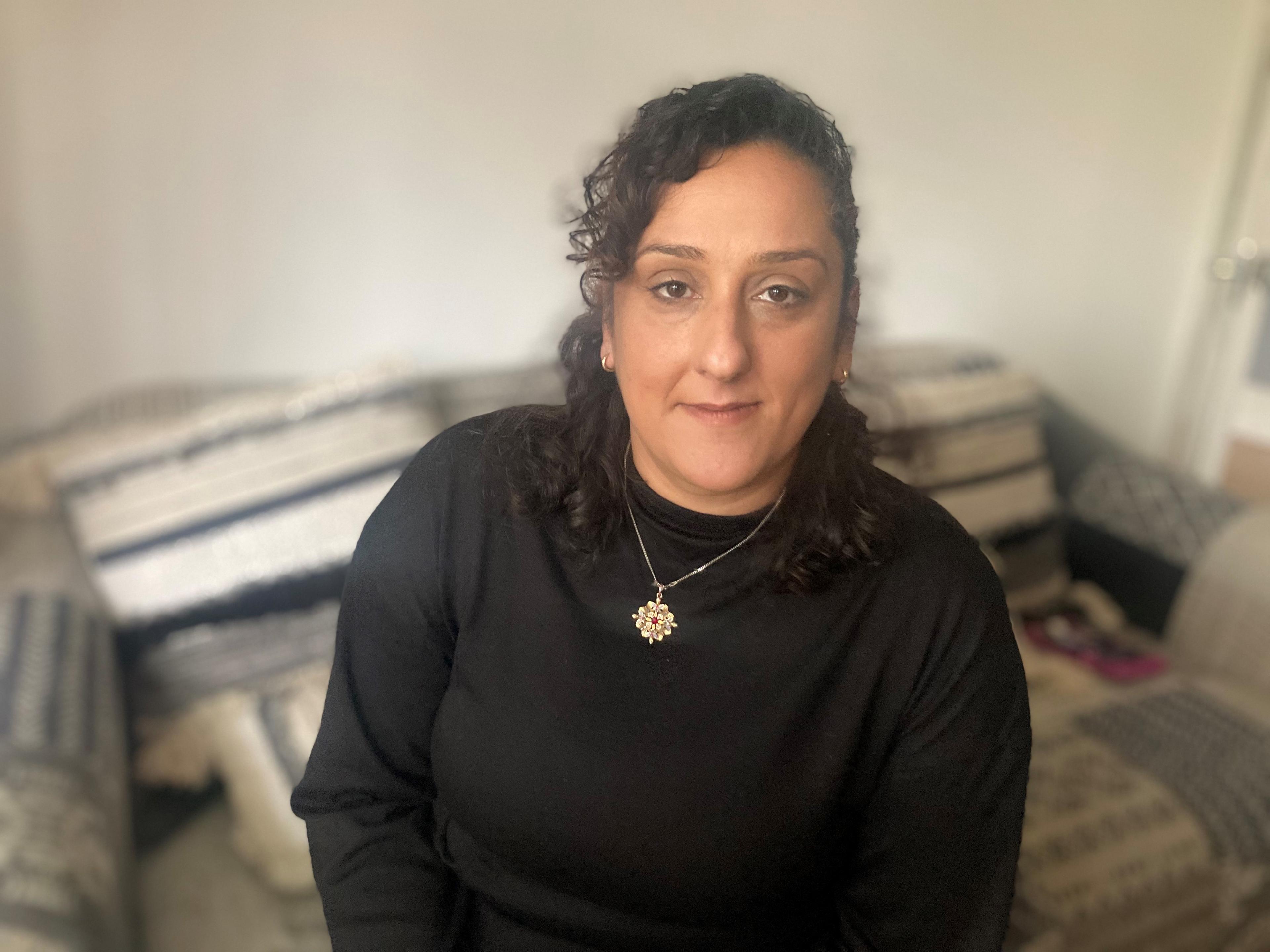
Julia Pennington helps survivors of abuse and exploitation deal with trauma.
Miss Pennington said the Manchester still bears the scars of the lethal gun violence in the 1990s that saw the city labelled 'Gunchester'.
"We've never got over the gang violence of the 90s," she said, remembering growing up in the city during that time.
"Most of the boys I grew up with are either dead or in jail. I've now got a 20-year-old daughter who's coming home and telling me the same thing.
"It's inter-generational. The gang violence of the 90s left waves of trauma through this community that we've never repaired.
"No-one is shining a light on the trauma."
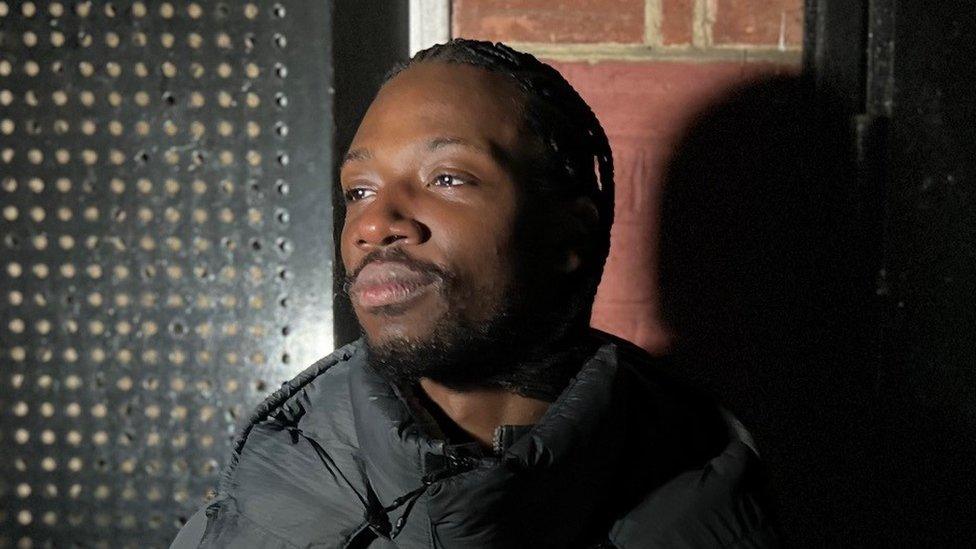
Sosa Henkoma did not realise he was being exploited for years by a criminal gang
Sosa Henkoma, 25, was exploited and abused by an organised crime group before Miss Pennington found him in a safe house in Manchester and took him under her wing.
As a child he was forced to run drugs and guns between Liverpool and London for a decade.
Eventually, while in prison for firearms possession, he was officially recognised as a victim of modern slavery.
Miss Pennington said: "My first observation was his smile. He just smiled his way through the session as if everything was fine. But he was masking.
"I could see that beneath the smile things weren't alright and he'd suffered considerable trauma.
"And it took Sosa two or three years to accept he was a victim because nobody wants that label. Especially men.
"His is sadly not a uncommon story - it's the cycle of abuse and abandonment and exploitation.
"Our job as an organisation is to remove the stigma and the negative public perception of people like Sosa.
"He didn't choose for those things to happen to him as a small child and he didn't know any different."
'Struggling'
Local authorities in the UK only referred 1,818 child cases of potential criminal exploitation to a government framework designed to protect them in the year to April 2023, despite taking on 14,440 in England alone.
An 18-year-old offender, who requested anonymity, told BBC North West: "I was exploited by a County Lines gang before I was referred to the National Referral Mechanism.
"My solicitor dealt with it and I was classed as a 'conclusive grounds victim of modern slavery'.
"I didn't hear anything from anyone. Nothing from social services, nothing from the police.
"I was then re-exploited by the same gang and I ended up getting arrested under modern slavery laws."
The Local Government Association told the BBC that providing support for children was becoming "increasingly challenging" for cash-strapped councils.
Miss Pennington said: "We've got very few youth services left [and] higher case loads in the probation service, with social workers. Police are struggling to respond to a growing number of calls.
"Everybody has a duty to safeguard but when the caseload is so high - as your investigation has shown - then frontline services are up against it.
"And how do you prioritise one against the other? A five-year-old abused at home versus a teenager exploited by drugs gangs? Where do you put your energy?
"There needs to be more funding into services and we need to look at the root cause - which is trauma."

Why not follow BBC North West on Facebook, external, X, external, and Instagram, external? You can also send story ideas to northwest.newsonline@bbc.co.uk, external
Related topics
- Published30 January 2024

- Published16 January 2024
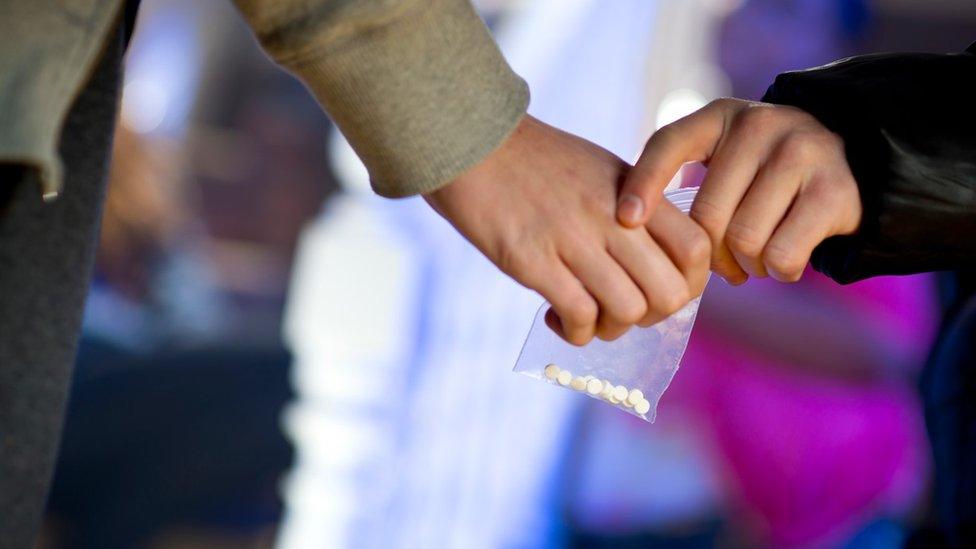
- Published4 January 2024
